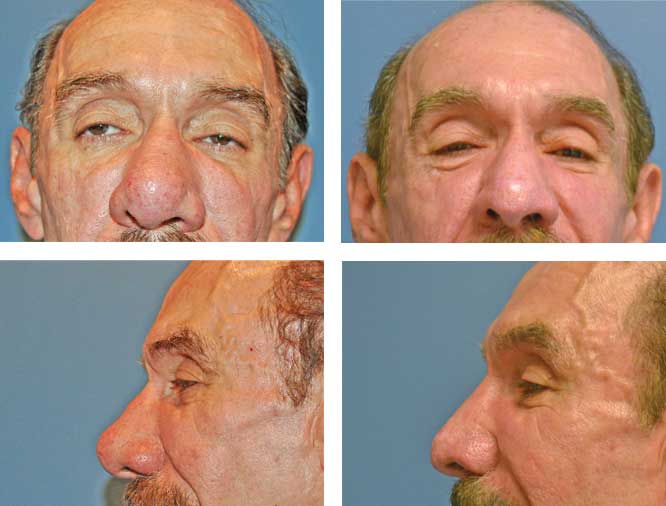Dermabrasion by Melissa Johnson MD, FACS
Dermabrasion Treatments

Dermabrasion is most often used to improve the look of facial skin left scarred by accidents or previous surgery, or to smooth out fine facial wrinkles, such as those around the mouth. It's also sometimes used to remove the pre-cancerous growths called keratoses. Dermabrasion can be performed on small areas of skin or on the entire face. It can be used alone, or in conjunction with other procedures such as facelift, scar removal or revision, or chemical peel. Dermabrasion can also be effective in improving superficial or nearly flat acne scars. Best results will be achieved by limiting sun exposure after treatment.
See FAQs below.
We Love Questions!
Dermabrasion FAQs
What is dermabrasion?
Dermabrasion is a surgical procedure that helps even out the texture of your skin. Dermabrasion is most often used to improve the look of facial skin left scarred by accidents or previous surgery, or to smooth out fine facial wrinkles, such as those around the mouth. During your consultation, we will provide you with our expert opinion on whether you are a good candidate. We will discuss the surgical process along with any possible risks and complications of the surgery.
How should I prepare for a dermabrasion consultation?
Researching dermabrasion on reputable internet sites such as the American Society of Plastic Surgeons can be very informative to help provide an overview. However, information regarding your personal treatment plan can best be obtained by making an appointment and speaking with Dr. Johnson. It's helpful to write down any questions or concerns you have so they can be addressed at that time. Know what your surgical expectations are so Dr. Johnson can discuss them with you. If you are a smoker, we recommend quitting to help reduce the risk of wound healing complications. We also recommend a healthy lifestyle to help your recovery process.
Will I be seen by the surgeon?
Yes. Dr. Johnson will meet with you and she will discuss all your surgical options. Dr. Johnson will provide you with the necessary information so that you feel confident and comfortable with your surgical decision.
Is the plastic surgeon board certified?
Yes. Dr. Johnson is board certified by the American Board of Plastic Surgery, is a fellow of the American College of Surgeons, and is a proud member of the American Society of Plastic Surgeons. Additionally, she is a member of the American Society for Aesthetic Plastic Surgery, which recognizes surgeons who specialize in cosmetic plastic surgery.
Will I be charged for an initial consultation?
Yes. There is a $100 cosmetic consultation fee. If you choose to have surgery with Dr. Johnson, the $100 will go towards the surgical fee.
Are there different types of dermabrasion procedures?
Dermabrasion is done with a surgical instruments called a dermatome. A brush is attached to the dermatome and it spins back and forth to scrape away the top layer of skin to smoothen the texture. Other procedures may be needed in conjunction with dermabrasion to address other aspects of the face.
What is the surgical process?
The surgery is performed at a hospital. During surgery you will receive IV sedation or general anesthesia. The surgery will take up to 1 hour depending on the size of the area being treated and the extent of the problem. Once you are awake you are taken to the recovery room for another 1-2 hours and then discharged home.
Are there risks involved with dermabrasion?
Yes, there are risks with any surgical procedure. Some of the possible risks with dermabrasion are pain, infection, bruising, swelling, abnormal scarring, or unsatisfactory results.
Where will my dermabrasion procedure be performed?
Dr. Johnson has privileges at Baystate Medical Center and Mercy Medical Center. Both are surgical facilities in Springfield, MA, accredited by the Joint Commission, and have been awarded the Gold Seal of Approval.
What is the recovery process after dermabrasion?
During the first few days the areas treated will be fairly red and swollen. You may have drainage and crusting as well. The extent of the area treated will determine the amount of discomfort that you have, and this can be controlled with medication prescribed by your surgeon. You may also feel tingling, burning, or itching as the area heals and new skin starts to grow. We recommend you apply antibiotic ointment to the area. We will see you about 5 days after surgery to evaluate your healing process. We request that you do no strenuous exercise for at least 2 weeks after surgery.
Will my insurance cover dermabrasion surgery?
No. Dermabrasion is a cosmetic procedure. The insurance companies do not deem this procedure medically necessary and therefore it is not a covered procedure by insurance carriers.
Can I finance my dermabrasion?
Yes. We offer patient financing through CareCredit or ALPHAEON CREDIT. See our Financing FAQs for more information.
What forms of payment are accepted?
We accept all major credit cards, debit cards, cash, money orders, and certified bank checks, or you can finance through CareCredit.
Can I make payments online?
Yes. You can make credit card payments securely online.

 Dermabrasion #1
Dermabrasion #1